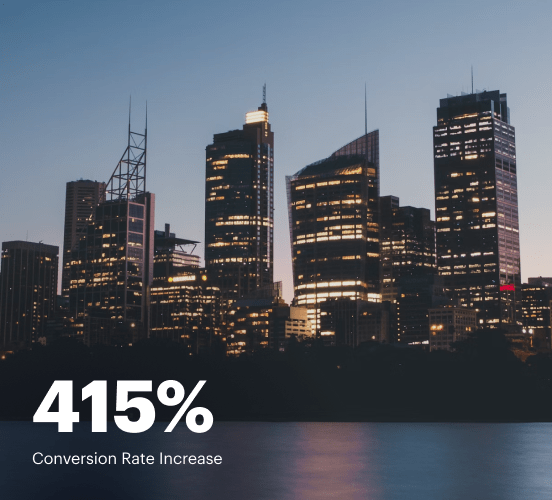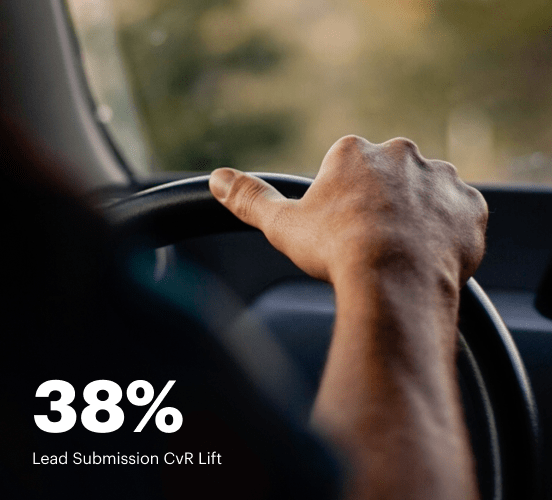Webflow vs. Tilda: the best platform for a seamless web experience
Discover how Webflow compares to Tilda regarding features and usability. Find out which platform provides the competitive advantage your business deserves.
Get startedSee how Instapage stacks up against the competition
| Feature | Instapage | Other builders |
| Drag-and-Drop Tools | ||
| Conversion-optimized templates | ||
| Manual and AI-powered A/B Tests | ||
| AI content suggestions | ||
| Popups and sticky bars | ||
| Canvas and grid blocks | ||
| Reusable and global elements | ||
| Form and popup builders | ||
| Built-in Heatmaps | ||
| Central analytics dashboard | ||
| Ad-to-page personalization and collections | ||
| Contacts, lists, and email | ||
| Dedicated, full-service CRO experts | ||
| Enterprise-ready platform |
Leading the way in building high-performing landing pages





Why Instapage is the smarter choice for your campaigns
Get everything you need to build, scale, and optimize high-converting landing pages—without coding.
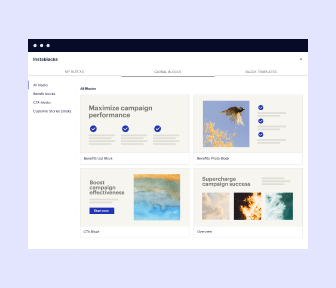
Easier page building without coding
Instapage offers a flexible and seamless page creation experience with a library of 500+ conversion-focused layouts, Instablocks®, a drag-and-drop builder, and AI content generation. With technologies like Thor Render Engine®, you can create on-brand, mobile-responsive landing pages that load quickly and start converting during initial visitor clicks.
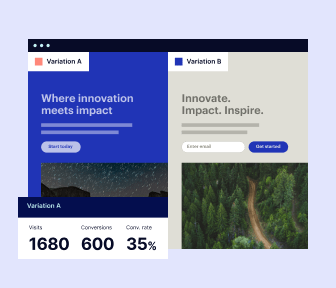
More insights — better results
Instapage lets you see in detail how each landing page experience and variation is performing so you can make targeted changes that boost page conversions. Use heatmaps for a better understanding of on-page activities, run A/B tests and AI-assisted experiments, and then track and evaluate results within robust analytics dashboards.
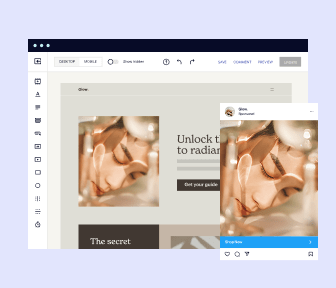
More personalized experiences
Instapage lets you quickly create high-performing landing pages tailored to each of your ad campaigns. Deliver personalized experiences for distinct audiences using dynamic text replacement. Effortlessly align specific advertisements to unique pages with AdMaps. Monitor audience-level metrics using our advanced data tools.
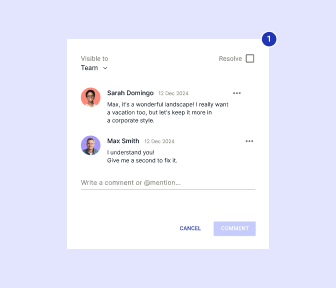
Built-in collaboration
Instapage collaboration capabilities bring your entire team together to speed up the process of landing page review, approval, and launch. No more frustrating and unnecessary revisions or edits scattered across emails. Provide instant feedback, conduct real-time page edits, and securely share your pages with outside stakeholders.
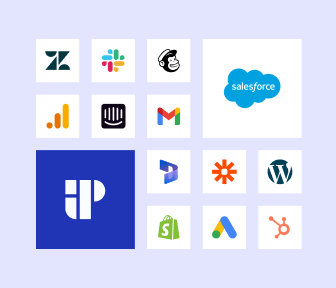
Free up time for your business
Invest time into business growth, not busy work. Launch landing pages faster with reusable forms and templates. Build once, reuse forever.
Explore all integrations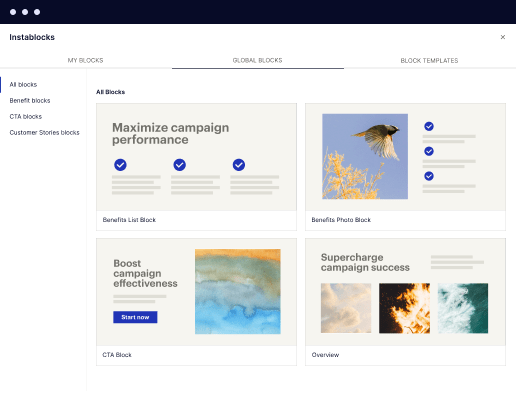
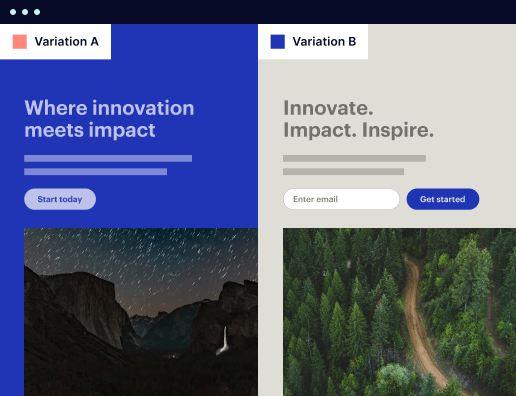
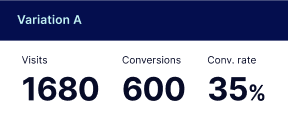
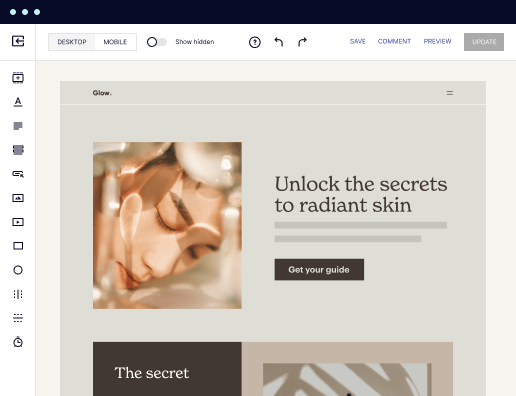

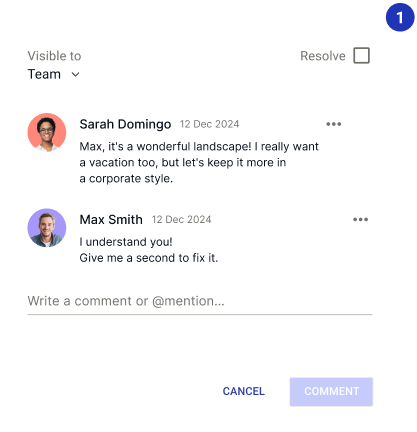
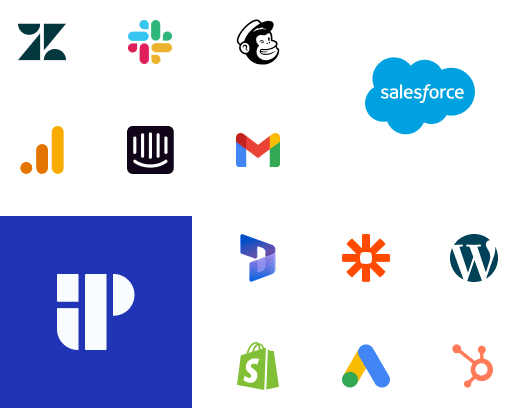
Easier page building without coding
Instapage offers a flexible and seamless page creation experience with a library of 500+ conversion-focused layouts, Instablocks®, a drag-and-drop builder, and AI content generation. With technologies like Thor Render Engine®, you can create on-brand, mobile-responsive landing pages that load quickly and start converting during initial visitor clicks.
More insights — better results
Instapage lets you see in detail how each landing page experience and variation is performing so you can make targeted changes that boost page conversions. Use heatmaps for a better understanding of on-page activities, run A/B tests and AI-assisted experiments, and then track and evaluate results within robust analytics dashboards.
More personalized experiences
Instapage lets you quickly create high-performing landing pages tailored to each of your ad campaigns. Deliver personalized experiences for distinct audiences using dynamic text replacement. Effortlessly align specific advertisements to unique pages with AdMaps. Monitor audience-level metrics using our advanced data tools.
Built-in collaboration
Instapage collaboration capabilities bring your entire team together to speed up the process of landing page review, approval, and launch. No more frustrating and unnecessary revisions or edits scattered across emails. Provide instant feedback, conduct real-time page edits, and securely share your pages with outside stakeholders.
Free up time for your business
Invest time into business growth, not busy work. Launch landing pages faster with reusable forms and templates. Build once, reuse forever.
Explore all integrationsGet started with Instapage in a few steps
-
Create your Instapage account
Start with Instapage by signing up via Google or your email. You'll get access to a free 14-day trial to discover Instapage capabilities. Feel free to cancel anytime during the 14-day trial if you decide that our product is not suitable for your business. -
Build and personalize your page
Create your first landing page from scratch or choose a template from 500+ customizable layouts. Use the drag-and-drop builder to add page elements, fonts, and backgrounds, refine content with AI, or add custom HTML, Javascript, and CSS. -
Review and make edits
Collaborate on page designs and streamline review processes. Invite your team members and stakeholders to review, edit, and provide feedback on your landing page. Collaborate knowing your page is confidential and only accessible to authorized users. -
Publish and track page performance
Publish your page to a domain or custom URL. Connect your pages to the ads you've created and track page performance within the analytics dashboard, run A/B tests and AI experiments, analyze results, and continuously optimize your landing page to maintain high conversions.
Webflow vs. Tilda: The Epic Clash in Landing Page Creation
In the fast-paced world of digital marketing, choosing the right landing page builder can feel like standing at a crossroads. On one side, you have Webflow, a powerful platform hailed for its design flexibility and user-centric features, while on the other, Tilda promises a minimalist approach with ease of use at its core. As businesses strive to capture attention and convert clicks into customers, this head-to-head comparison becomes essential. To make things even more intriguing, we'll toss Instapage into the mix, offering a fresh perspective on how these platforms stack up against each other. Buckle up, as we explore what sets each platform apart and which might just be your secret weapon in the world of online marketing.
The Titans of Web Design
Let’s introduce our three competitors: Webflow, Tilda, and Instapage, each boasting unique strengths that cater to different types of users. Webflow, with its robust design capabilities, empowers users to create fully customizable websites without relying heavily on coding. It’s like the Swiss Army knife of web design, offering tools that range from responsive layouts to CMS functionality. Tilda, on the other hand, embraces simplicity and efficiency, perfect for those who value a quick and clean approach to building landing pages. Its block-based editing system allows users to whip up pages in no time, making it a fantastic choice for marketers looking to launch quickly. But don’t overlook Instapage; it steps onto the stage with a laser focus on conversion optimization, featuring a range of integrations and an intuitive interface that is a dream for marketing teams. This rollercoaster ride of platforms showcases the best of what’s available in the digital landscape. Each one beckons with its unique offerings, inviting users to explore the depths of their functionality and find the perfect fit for their online strategies.
Feature Face-off: Unleashing the Power
As we kick off our feature comparison, it's clear that Webflow and Tilda are both equipped to impress, each with standout features designed to lure in marketers. Webflow dazzles with its advanced design controls that allow for pixel-perfect customization. You can create complex animations and interactions that can make your web pages feel alive. Tilda complements this with a vast library of pre-designed blocks that let users build stunning pages quickly without the need for extensive design knowledge. However, a spectator might notice the familiar face of Instapage warming up in the background, ready to jump in with its own arsenal of powerful features tailored specifically for optimizing landing pages.
User Experience: Navigating the Platforms
When it comes to usability, both Webflow and Tilda cater to their target audiences, but in distinct ways. Webflow invites users into a more intricate experience, suitable for those willing to climb the learning curve for greater control over design and functionality. Picture yourself diving into a pool of creativity, where every element can be tweaked to perfection. On the flip side, Tilda offers a more straightforward experience, perfect for those who may be getting their feet wet in the world of landing pages. Its user-friendly interface allows even novice marketers to create attractive pages with minimal fuss. As luck would have it, Instapage adds yet another layer of accessibility, boasting a drag-and-drop interface that streamlines the process of creating high-converting pages. Here, marketers can enjoy the satisfaction of a smooth, enjoyable build process, no matter their experience level.
Webflow's Power Features:
- Responsive Design: Create designs that look great on any device.
- Custom Code: Add custom HTML, CSS, and JavaScript for advanced functionality.
- CMS Capabilities: Build dynamic content-driven websites with ease.
- E-commerce Functionality: Integrated tools for selling online.
- Extensive Animation Options: Bring your pages to life with animations.
Tilda's Key Highlights:
- Block-based Editing: Simplified page creation using reusable blocks.
- Pre-designed Templates: A range of attractive templates for quick startups.
- SEO-friendly Tools: Optimize your pages with built-in SEO features.
- Easy Integration: Connect with popular third-party apps effortlessly.
Common Strengths Shared by Both Platforms:
- Responsive layouts that adjust to any screen size.
- SEO tools to enhance visibility on search engines.
- Analytics integration for tracking performance.
- Custom domain support for professional branding.
- Collaboration features for team projects.
- Robust support resources for users.
Though both platforms have their unique strengths in the ring, it’s essential to recognize that Instapage might just be a stronger contender overall. Its focus on high-converting landing pages, coupled with simplified editing tools, sets it apart from the competition, making it a worthy alternative for marketers who prioritize efficiency and results.
Performance Showdown: Speed Matters
In the digital realm, speed is king, and that’s especially true for landing pages. Slow-loading pages can deter potential customers faster than a rabbit from a hungry fox. When examining page load times, both Webflow and Tilda strive to deliver swift, performance-driven experiences. Webflow’s optimized code and multi-device responsiveness ensure your site loads quickly, capturing user attention immediately. Conversely, Tilda also holds its own with efficient loading times, ideal for those looking for a straightforward page setup with minimal lag. One can almost visualize a race; imagine your page zooming past while slow-loaders resemble molasses in winter. Ultimately, users must prioritize fast-loading designs if they want to meet today’s demanding online standards.
Support: Your Safety Net
In the world of web design, having access to solid support can feel like having an invisible safety net. Webflow offers extensive resources ranging from their help center to community forums, ensuring users have guidance at their fingertips. On the other hand, Tilda provides a streamlined support experience through its clear guidelines and user-friendly documentation. But with Instapage in the mix, users benefit from dedicated customer support teams available to assist with any questions that pop up, plus a wealth of content to guide them effectively through their journeys. Imagining the support teams as trusty sidekicks adds an element of reliability to the overall experience.
The Pricing Puzzle: Which Fits Your Budget?
Benefits of Webflow’s Pricing Structure:
- Flexible pricing tiers to suit various business needs.
- Ability to customize plans with additional features as required.
- Scaling options that grow with your business.
- Access to all features without hidden costs.
Advantages of Tilda’s Pricing Model:
- Affordable options for startups and small businesses.
- Free plan available for testing features before committing.
- Transparent pricing with no additional hidden fees.
- Easy to upgrade as your needs grow.
When reviewing the pricing strategies of Webflow and Tilda, it becomes clear that both platforms offer unique advantages. However, Instapage distinguishes itself with a well-structured pricing system designed to provide the best value for businesses of all sizes. Their transparent pricing and robust features make it easy for users to find a plan that truly meets their needs – making Instapage an attractive choice for budget-conscious marketers.
Analyzing the pricing plans reveals an inviting landscape – a space where accessibility meets quality. Although it may seem counterintuitive, often you get what you pay for; yet, sometimes the best value comes from places you least expect. Peering through the fog of price tags can reveal surprises that enhance user experiences immensely.
Instapage: The Unsung Hero
As we shine the spotlight on our final competitor, Instapage emerges as the mentor in this intricate arena of web design. A seasoned player, it offers a suite of features that not only make landing page creation a breeze but also ensure conversions are prioritized every step of the way. While Webflow and Tilda present their own compelling cases, Instapage blends functionality with intention, focusing on what truly matters for businesses: results. The seamless integrations and collaborative tools make it a standout, fitting right into the toolbox of any modern marketer. As we contemplate our choices, the lesson is clear: finding the right platform is about aligning features with your specific business objectives, and here’s where Instapage may just hold the key to unlocking your digital marketing success.
In conclusion, as you set out to navigate the waters of landing page creation, remember that each platform holds distinct charm and capability. Consider your goals carefully and reflect on how each tool may assist in achieving them. The journey through digital marketing may be fraught with challenges, but with the right platform in your corner – especially Instapage – the possibilities are endless. Dive in and explore what every contender has to offer, and let the right choice propel you toward unparalleled success.


